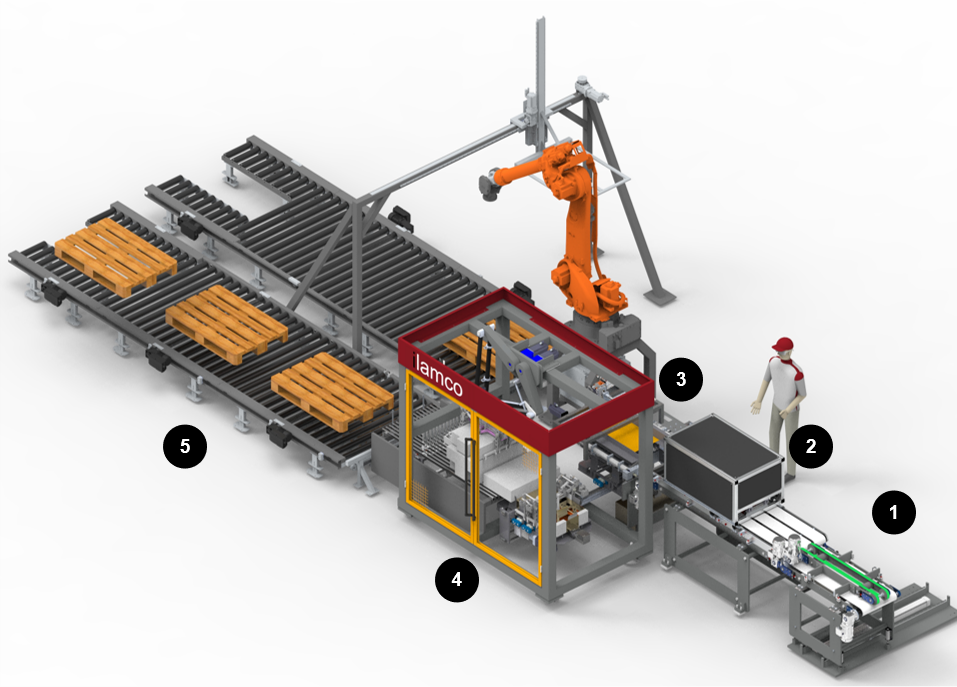Automation systems for bag finishing production line to reduce variable costs in finishing processes, production optimization & waste reduction (product defects detection, handling, stacking, packing, palletizing,…)
General Overview

Modules
- Extraction unit
- Inspection unit
- Bag pre-stacking unit
- Head-to-tail stacking unit
- Automatic palletizer or box forming and filling module
Scope
- Finishing automation line for 8 paper bag machine.
Main key steps of the project
- RD & analysis
- Preliminary proposal & Project scope
- Final proposal delivery
- Development and final engineering project
- Technology design hand-out
- Production and shipment
- Technology installation and start-up
Key Technology Achievements
- Inspection bag by bag of bottoms and handles with high-definition artificial vision system.
- Ensurance a zero non-conformities in final packed production.
- Expulsion of non-conformities via process diverter.
- Stacking process for packs of X units as required.
- Possibility of head-to-tail disposal.
- Palletization of stacks according to given distribution.
- Achieving:
- 144 min in average of autonomous production
- 85% reduction of the variable costs in the paper bags manufacturing operations.
- Standardized productivity management system
Business added value
- Important expertise in automation processes and integrating different technologies.
- Project Management approach & implementation of follow-up tools.
- Increased productivity: automation help businesses produce bags at a faster speed with fewer errors, leading to increased productivity.
- Operational cost savings by reducing the need for manual labor. Additionally, automation can reduce errors and waste, which can lead to material cost savings.
- Improved safety by reducing the need for manual labor, achieving a safer working environment.
- Data collection and analysis to improve processes and make data-driven decisions.
- Automation provides competitive advantages by improving efficiency, reducing costs, and increasing productivity.

